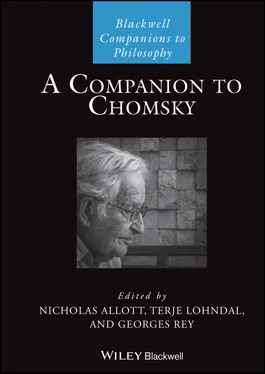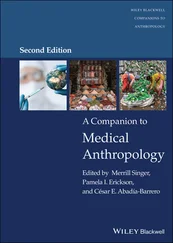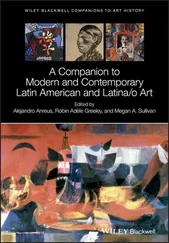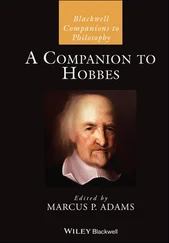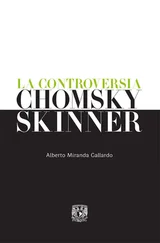A Companion to Chomsky
Здесь есть возможность читать онлайн «A Companion to Chomsky» — ознакомительный отрывок электронной книги совершенно бесплатно, а после прочтения отрывка купить полную версию. В некоторых случаях можно слушать аудио, скачать через торрент в формате fb2 и присутствует краткое содержание. Жанр: unrecognised, на английском языке. Описание произведения, (предисловие) а так же отзывы посетителей доступны на портале библиотеки ЛибКат.
- Название:A Companion to Chomsky
- Автор:
- Жанр:
- Год:неизвестен
- ISBN:нет данных
- Рейтинг книги:3 / 5. Голосов: 1
-
Избранное:Добавить в избранное
- Отзывы:
-
Ваша оценка:
- 60
- 1
- 2
- 3
- 4
- 5
A Companion to Chomsky: краткое содержание, описание и аннотация
Предлагаем к чтению аннотацию, описание, краткое содержание или предисловие (зависит от того, что написал сам автор книги «A Companion to Chomsky»). Если вы не нашли необходимую информацию о книге — напишите в комментариях, мы постараемся отыскать её.
Companion
Companion
A Companion to Chomsky
A Companion to Chomsky — читать онлайн ознакомительный отрывок
Ниже представлен текст книги, разбитый по страницам. Система сохранения места последней прочитанной страницы, позволяет с удобством читать онлайн бесплатно книгу «A Companion to Chomsky», без необходимости каждый раз заново искать на чём Вы остановились. Поставьте закладку, и сможете в любой момент перейти на страницу, на которой закончили чтение.
Интервал:
Закладка:
Table of Contents
1 Cover
2 Blackwell Companions to Philosophy
3 Title Page
4 Copyright
5 Notes on Contributors
6 Acknowledgments
7 1 Synoptic Introduction 1.1 Introduction 1.2 Part I: Historical Development of Linguistics 1.3 Part II: Contemporary Issues in Syntax 1.4 Part III: Comparisons with Other Frameworks 1.5 Part IV: Processing and Acquisition 1.6 Part V: Semantics, Pragmatics, and Philosophy of Language 1.7 Part VI: Cognitive Science and Philosophy of Mind 1.8 Part VIII: Methodological and Other Explanatory Issues Endnotes References
8 2 Biographical Sketch Endnote References
9 Part I: Historical Development of Linguistics 3 From the Origins of Government and Binding to the Current State of Minimalism 1 3.1 Setting the Scene 3.2 Some Context: The Emerging Idea of Principles and Parameters 3.3 Principles and Parameters: Solving Plato's Problem 3.4 Government and Binding 3.5 The Minimalist Program: Untying the Descriptive vs. Explanatory Knot 3.6 Current Tendencies 3.7 Conclusion Endnotes References 4 The Enduring Discoveries of Generative Syntax 4.1 Introduction 4.2 Shaping the Research Methodology of Generative Linguistics 4.3 Generative Syntax Through the Lens of Nonlocal Dependencies 4.4 Conclusion Endnotes References 5 The Chomsky Hierarchy 1 5.1 Introduction 5.2 Rewriting Grammars 5.3 Type 3 Grammars: Finite State Grammars 5.4 Type 2 Grammars: Context‐Free Grammars 5.5 Beyond Context‐Free Grammars 5.6 Conclusion Endnotes References 6 Naturalism, Internalism, and Nativism:  What
What  The Legacy of The Sound Pattern of English
The Legacy of The Sound Pattern of English  Should Be
Should Be  6.1 Basics of SPE Phonology 6.2 Internalism in Phonology 6.3 Anti‐Internalism and Rejection of Nativism 6.4 What Is Innate? 6.5 Naturalism in Phonology 6.6 Conclusion Endnotes References 7 Language as a Branch of Psychology: Chomsky and Cognitive Science 1 7.1 Background 7.2 A First Look at the Input to the Child: Non‐Effects of Motherese 7.3 Acquisition in the Face of Input Deprivation 7.4 Syntactic Bootstrapping: Verbs of a Feather Flock Together 7.10 Thoughts about the Future 7.11 Conclusion Endnotes References
6.1 Basics of SPE Phonology 6.2 Internalism in Phonology 6.3 Anti‐Internalism and Rejection of Nativism 6.4 What Is Innate? 6.5 Naturalism in Phonology 6.6 Conclusion Endnotes References 7 Language as a Branch of Psychology: Chomsky and Cognitive Science 1 7.1 Background 7.2 A First Look at the Input to the Child: Non‐Effects of Motherese 7.3 Acquisition in the Face of Input Deprivation 7.4 Syntactic Bootstrapping: Verbs of a Feather Flock Together 7.10 Thoughts about the Future 7.11 Conclusion Endnotes References
10 Part II: Contemporary Issues in Syntax 8 The Architecture of the Computation 1 8.1 The Computational Task 8.2 Computation and Syntax 8.3 A Minimalist Architecture 8.4 Summary Endnote References 9 Merge and Features: The Engine of Syntax 1 9.1 Introduction 9.2 Merge 9.3 Features 9.4 Feature Movement 9.5 Conclusion Endnotes References 10 On Chomsky's Legacy in the Study of Linguistic Diversity 10.1 Introduction 10.2 The “Neglect” Period of Aspects 10.3 The “Limiting” Period of LGB 10.4 The “Denying” Phase of The Minimalist Program References 11 Parameters and Linguistic Variation 11.1 Introduction 11.2 Parameters: An Evolving Notion 11.3 Word Order Variation 11.4 Argument Expression 11.5 Conclusions and Outlook Endnotes References Chapter 12: Constraints on Grammatical Dependencies 12.1 Overview 12.2 Constraints 12.3 Constraints That Do Not Meet the Requirements 12.4 Constraints That Meet the Requirements Endnotes References 13 Chomsky's Influence on Historical Linguistics: From Universal Grammar to Third Factors 13.1 Introduction 13.2 Generative Grammar and Historical Linguistics 13.3 From Principles and Parameters to Third Factors 13.4 Change Due to Labeling Pressure 13.5 Change Due to Indeterminacy 13.6 Conclusions Endnotes References 14 Second Language Acquisition 14.1 Introduction 14.2 Poverty of the Stimulus and UG Parameters 14.3 Subjacency, the Empty Category Principle, and Structure Preservation 14.4 The Limits of the Input 14.5 Conclusions Endnotes References 15 Multilingualism and Chomsky's Generative Grammar 15.1 Introduction 15.2 Bilingualism and Parameter Setting 15.3 Multilingualism and the I‐language/E‐language Debate 15.4 Conclusion Endnotes References
11 Part III: Comparisons with Other Frameworks 16 The View from Declarative Syntax 1 16.1 Introduction 16.2 Factoring Apart Structure and Information 16.3 Design Features of a Grammatical Framework 16.4 Salient Properties 16.5 Conclusion Endnote References 17 How Statistical Learning Can Play Well with Universal Grammar 17.1 Introduction 17.2 Statistical Learning Mechanisms in Small Humans 17.3 When Statistical Learning Complements UG 17.4 When Statistical Learning Refines What's in UG 17.5 Concluding Thoughts Endnote References 18 Chomsky and Usage‐Based Linguistics 1 18.1 Introduction 18.2 Usage‐Based Linguistics 18.3 Chomsky and Usage‐Based Linguistics: The Short Story 18.4 Chomsky and Usage‐Based Linguistics: The Long Story 18.5 Conclusion Endnotes References
12 Part IV: Processing and Acquisition 19 Sentence Processing and Syntactic Theory 19.1 Introduction 19.2 Ambiguity Resolution and Reanalysis 19.3 Filler‐Gap Dependency Processing 19.4 Anaphoric Relations 19.5 Conclusion Endnotes References 20 Neuroscience and Syntax 20.1 Introduction 20.2 Language as a Biological System 20.3 The Early Days: Neuropsychological Evidence for Syntax in the Brain 20.4 Functional Imaging of Syntactic Computations 20.5 Functional and Structural Connections of the Syntactic Network 20.6 Ontogeny 20.7 Phylogeny 20.8 Conclusion Conflicts of Interest Acknowledgments Endnote References 21 Universal Grammar and Language Acquisition 21.1 Introduction 21.2 Principle C 21.3 Logical Form 21.4 Principle C in Child Language 21.5 Declarative Sentences 21.6 Conclusion Endnotes References 22 Chomsky and Signed Languages 22.1 Introduction and History 22.2 Syntax and Modularity 22.3 Acquisition and Emergence 22.4 Consequences and Implications References 23 Atypical Acquisition 1 23.1 Introduction 23.2 Atypical Acquisition 1: Learners Deprived of Language Input 23.3 Atypical Acquisition 2: Learners with Neuro Atypical Profiles 23.4 Conclusions Endnotes References
13 Part V: Semantics, Pragmatics, and Philosophy of Language 24 Chomsky and the Analytical Tradition 24.1 Introduction 24.2 Formal Beginnings 24.3 Chomsky and Formality 24.4 Objectivity, Analysis, and Explanation 24.5 No Homeric Struggle Endnotes References 25 Chomsky on Meaning and Reference 25.1 Introduction 25.2 Data: Ambiguity and Absence 25.3 Strings and Constituents 25.4 Lexical Meanings without Classical Extensions 25.5 Complexities of Use Endnotes References 26 Chomsky on Semantics 1 26.1 Skepticism and Autonomy 26.2 Syntax‐Semantics Interface 26.3 Chomskian Semantics? 26.4 Reference and Truth Conditions 26.5 Conclusion Endnotes References 27 Chomsky and Pragmatics 1 27.1 Introduction 27.2 Chomsky's Importance for Pragmatics as Cognitive Science 27.3 Chomsky's Views on Pragmatics 27.4 Critique of Chomsky's Conception of Pragmatics 27.5 Conclusion Endnotes References
14 Part VI: Cognitive Science and Philosophy of Mind 28 Nativism 28.1 Introduction 28.2 Plato's Problem, or Brute Biology? 28.3 Innate and Learned! 28.4 Statistical Approaches 28.5 Quine's Problem of Superficialism and a Solution 28.6 Conclusion Endnotes References 29 The Deep Forces That Shape Language and the Poverty of the Stimulus 29.1 Introduction 29.2 The Amalgamation of Linguistic Phenomena 29.3 Questions and Statements 29.4 Cross‐Linguistic Evidence 29.5 The Ubiquity of Evidence 29.6 When Children Ignore the Primary Linguistic Data 29.7 Conclusion Endnote References 30 Chomsky on the Evolution of the Language Faculty: Presentation and Perspectives for Further Research 30.1 Introduction 30.2 The Faculty of Language: Then and Now 30.3 Language Is Not Primarily a Tool for Communication 30.4 Conclusion: Extending the FLN Endnotes References 31 Chomsky and Intentionality 31.1 Introduction 31.2 Intentionality 31.3 Chomsky's (Apparent) Intentionalism 31.4 Chomsky's Censure of the Intentional 31.5 Only an Apparent Inconsistency? 31.6 The Language Faculty Alone 31.7 Two Problems and Their Potential Resolution 31.8 The Need of Intentionality as a Common Coin 31.9 Conclusion Endnotes References 32 The Mind–Body Relation: Problem, Mystery, or What? Endnotes References
Читать дальшеИнтервал:
Закладка:
Похожие книги на «A Companion to Chomsky»
Представляем Вашему вниманию похожие книги на «A Companion to Chomsky» списком для выбора. Мы отобрали схожую по названию и смыслу литературу в надежде предоставить читателям больше вариантов отыскать новые, интересные, ещё непрочитанные произведения.
Обсуждение, отзывы о книге «A Companion to Chomsky» и просто собственные мнения читателей. Оставьте ваши комментарии, напишите, что Вы думаете о произведении, его смысле или главных героях. Укажите что конкретно понравилось, а что нет, и почему Вы так считаете.
